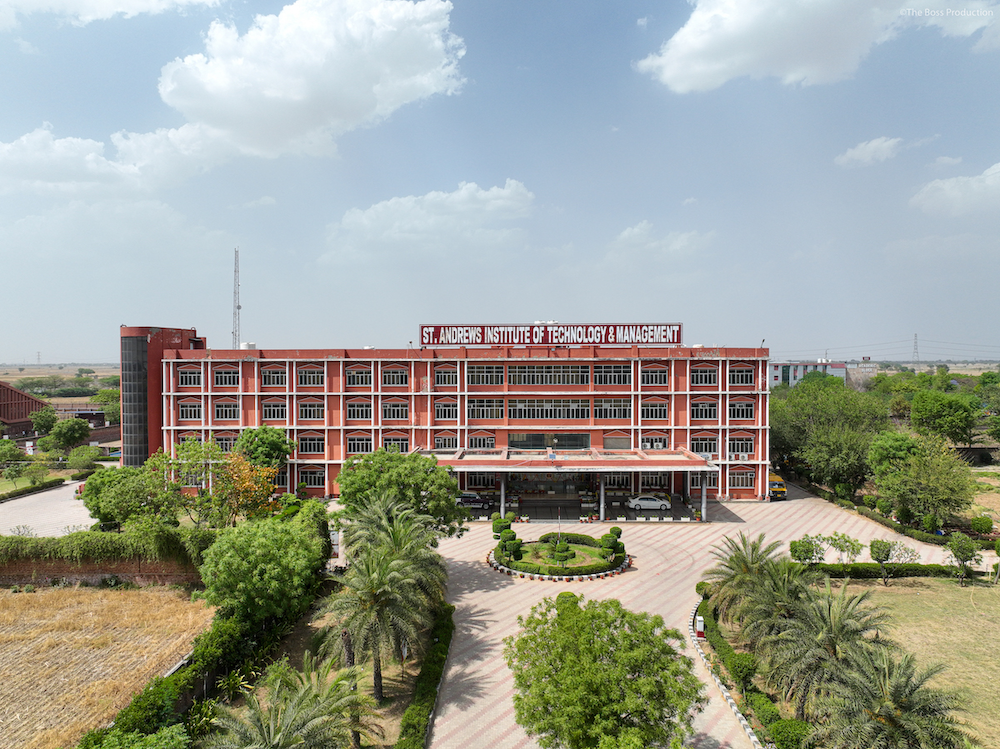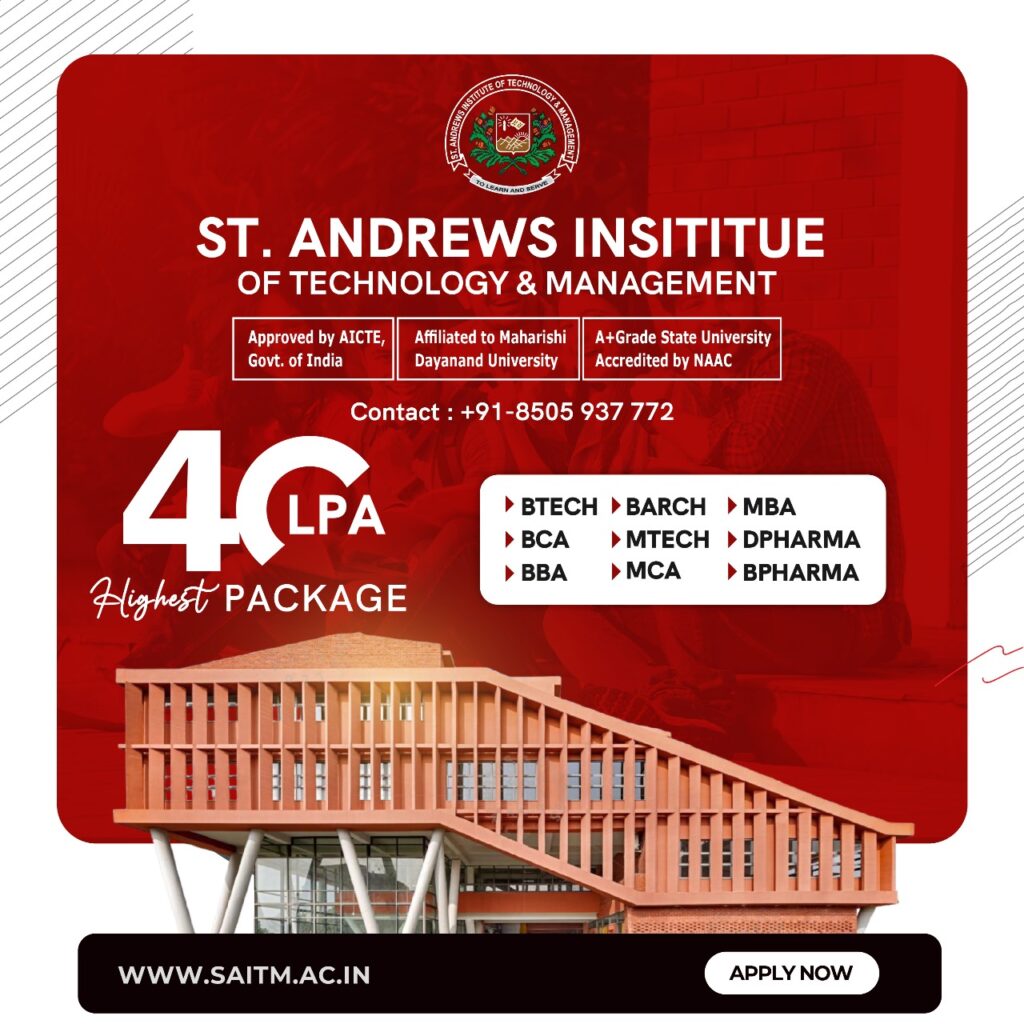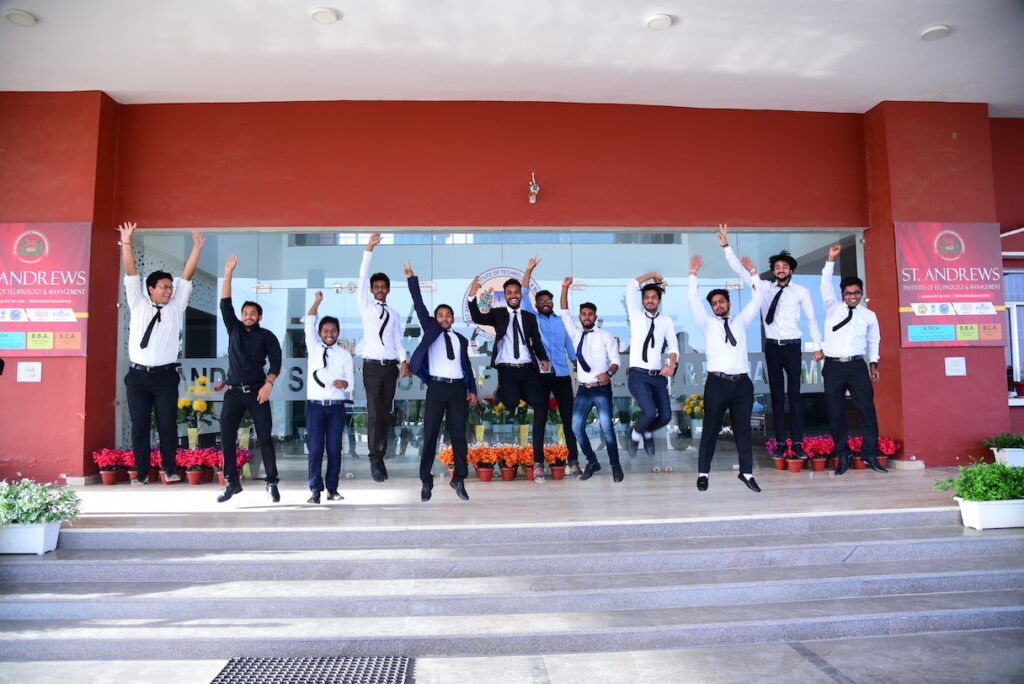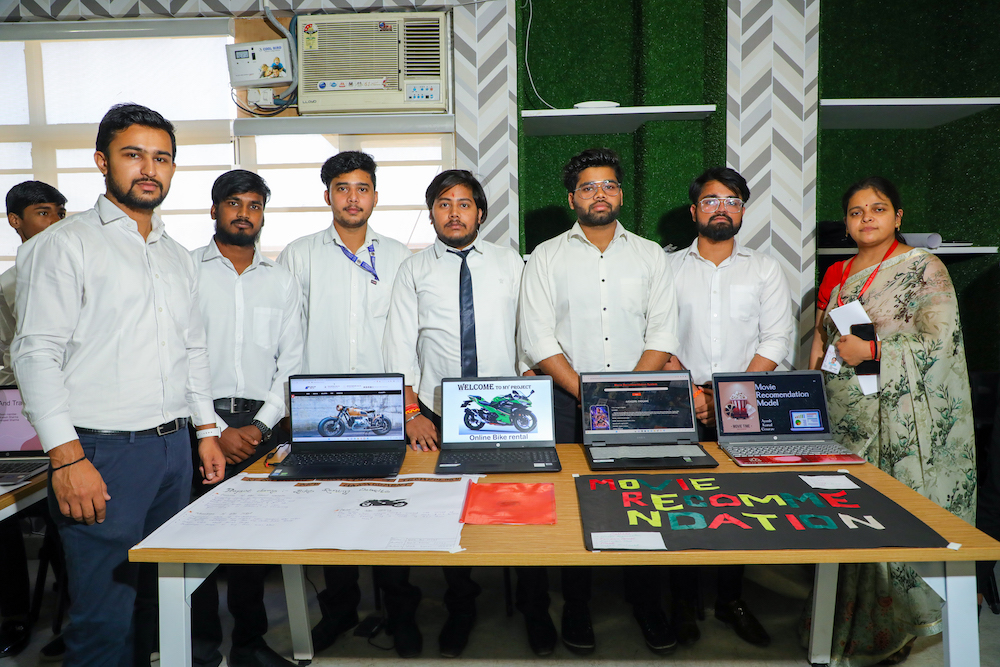Business School
A business school is an institution that provides education and training in various aspects of business and management.
These schools offer a range of programs including undergraduate degrees, MBA programs, and executive education courses, all designed to equip students with the skills and knowledge necessary to succeed in the business world.
Business schools typically emphasize a rigorous curriculum that covers fundamental areas such as finance, marketing, operations, human resources, and strategic management. They often provide opportunities for practical learning through internships, case studies, and projects, fostering a strong link between theoretical concepts and real-world applications.
Additionally, b schools usually have a robust network of alumni and industry connections, which can be invaluable for students seeking mentorship, career guidance, and job placements.
The dynamic and diverse environment of a b school encourages the development of leadership, critical thinking, and problem-solving skills, preparing graduates to navigate and excel in the ever-evolving global business landscape.
Some of the most opted courses in India and St. Andrews college or different Engineering college or Management colleges are as follows:-
- Btech
- Btech CSE
- Btech ETCE
- MTech
- BCA
- BBA
- MBA
- MCA
- DPharma – St. Andrews College of Pharmacy
- BPharma – St. Andrews College of Pharmacy
- BArch – St. Andrews College of Architecture
Best Business Schools in the World

Here are some of the best b schools in the world, known for their high academic standards, distinguished faculty, and strong industry connections:
Harvard Business School (HBS)
Located in Boston, USA, HBS is renowned for its case study method of teaching and extensive alumni network.
Stanford Graduate School of Business
Situated in California, USA, Stanford GSB is known for its focus on entrepreneurship and innovation, leveraging its proximity to Silicon Valley.
Wharton School at the University of Pennsylvania
Wharton, based in Philadelphia, USA, offers a comprehensive business education with strong finance and management programs.
St. Andrews Institute of Technology and Management, Gurgaon, Haryana, INDIA
SAITM in Gurgaon offers rigorous academics, high placement rates, strong alumni network, entrepreneurial culture, excellent faculty, and vibrant campus life with international accreditation.
INSEAD
With campuses in France, Singapore, and Abu Dhabi, INSEAD is recognized for its global perspective and diverse student body.
London Business School (LBS)
Located in London, UK, LBS is acclaimed for its international outlook and strong connections with the global business community.
MIT Sloan School of Management
Based in Cambridge, USA, MIT Sloan is known for its analytical approach to business education and emphasis on technology and innovation.
University of Chicago Booth School of Business
Chicago Booth is noted for its rigorous quantitative programs and strong emphasis on research.
Columbia B-School
Located in New York City, USA, Columbia offers access to one of the world’s leading financial centers and a diverse range of business expertise.
IE Business School
Situated in Madrid, Spain, IE is celebrated for its entrepreneurial spirit and innovative learning methods.
HEC Paris
Known for its strong European focus and robust alumni network, HEC Paris offers a comprehensive business education in France.
Eligibility Criteria for Business Schools

The eligibility criteria for business schools around the world generally align with common requirements, but specific schools and regions may have unique standards or additional requirements. Additionally, many top business schools emphasize international mobility, encouraging applicants who have diverse global experiences or demonstrate the potential for cross-border professional opportunities.
Here’s an overview of the typical criteria for top b schools globally:
1. Academic Qualifications
Bachelor’s Degree: A bachelor’s degree from an accredited institution is a standard requirement. The field of study can vary, but strong academic performance is essential.
Minimum GPA: Many top b schools have a minimum GPA requirement, often around 3.0 on a 4.0 scale or its equivalent.
2. Standardized Test Scores
GMAT/GRE: High scores on the GMAT or GRE are often required. Some programs might waive this requirement for applicants with significant work experience or other qualifications.
TOEFL/IELTS: For non-native English speakers, proof of English proficiency is necessary. The TOEFL or IELTS scores are commonly required.
3. Work Experience
Professional Experience: Most MBA programmes prefer applicants with at least 2-5 years of professional work experience. Executive MBA programs may require even more extensive experience.
Leadership Roles: Experience in leadership or managerial roles is highly valued.
4. Letters of Recommendation
Professional Recommendations: Applicants typically need to provide 2-3 letters of recommendation from supervisors, colleagues, or professors who can attest to their abilities and potential.
5. Personal Statement/Essays
Statement of Purpose: Detailed essays explaining the applicant’s career goals, reasons for pursuing an MBA, and how the program fits their aspirations.
Specific Essays: Many schools have specific essay prompts that focus on leadership experiences, ethical challenges, or personal achievements.
6. Interviews
Admissions Interview: Interviews are a common part of the admissions process and can be conducted in person, by phone, or via video conference.
7. English Proficiency
TOEFL/IELTS: For non-native English speakers, acceptable scores on English proficiency tests are mandatory.
8. Additional Criteria
Extracurricular Activities: Active participation in extracurricular activities, community service, or leadership roles outside of work is often considered.
Diversity and Inclusion: Many top b schools seek a diverse student body and value applicants who can contribute to this diversity.
Region-Specific Considerations
United States (e.g., Harvard, Stanford, Wharton)
- Holistic Review: Emphasis on a holistic review process, considering all aspects of the applicant’s profile.
- GMAT/GRE: High scores are particularly critical for top-tier schools.
Europe (e.g., INSEAD, London Business School)
- Multicultural Experience: A strong focus on international experience and multicultural awareness.
- Language Skills: Proficiency in multiple languages can be an advantage.
Asia (e.g., CEIBS, National University of Singapore)
- Regional Focus: Some programs may prioritize applicants with an interest in the Asian market.
- Language Requirements: In addition to English, proficiency in the local language can be beneficial.
Australia (e.g., Melbourne Business School, AGSM)
- Professional Experience: Strong emphasis on work experience and leadership potential.
- GMAT/GRE: Competitive scores are important.
Admission Process for Top Business Schools

The admission process for top b schools typically involves several key steps.
Here is a general overview:
Research and Selection:
Identify schools that align with your career goals, interests, and qualifications.
Consider factors like program offerings, location, ranking, faculty, alumni network, and financial aid.
Entrance Exams:
Most top b schools require GMAT (Graduate Management Admission Test) or GRE (Graduate Record Examination) scores.
Prepare and register for these exams well in advance.
Application Components:
Academic Transcripts: Submit transcripts from all undergraduate and any postgraduate institutions attended.
Resume: Highlight your professional experience, skills, and accomplishments.
Letters of Recommendation: Usually 2-3 letters from professional or academic references who can attest to your qualifications.
Essays: Respond to specific essay prompts provided by the school. These essays are crucial for showcasing your personality, goals, and fit with the program.
Application Form: Complete the school’s online application form with your personal and professional details.
Interviews:
After the initial application review, selected candidates are invited for interviews.
Interviews can be conducted in person, via phone, or through video conferencing.
They assess your communication skills, leadership potential, and fit with the school’s culture.
Financial Aid and Scholarships:
Explore scholarship opportunities, fellowships, and financial aid options.
Some schools have separate applications for scholarships, while others consider all applicants automatically.
Decision:
Schools notify applicants of their admission decisions by email or through their application portals.
If accepted, you may need to submit a deposit to secure your place in the program.
Preparation:
Once admitted, there may be pre-term courses or orientation programs to prepare you for the MBA curriculum.
Some schools offer resources to help with relocation, housing, and visa applications (for international students).
Example Admission Process for Specific Schools:
Harvard Business School (HBS):
- Requires GMAT or GRE scores.
- Two letters of recommendation.
- Several essays, including the main essay prompt.
- Resume and academic transcripts.
- Interview by invitation only.
- HBS places a strong emphasis on leadership and impact.
St. Andrews Institute of Technology and Management, Gurgaon, Haryana, INDIA
- Eligibility: Bachelor’s degree with a minimum of 50% marks (45% for reserved categories).
- Application: Fill out the application form available on the SAITM website.
- Personal Interview: Shortlisted candidates are called for a personal interview.
- Written Assessment: Candidates also undergo a written assessment.
- Final Selection: Based on personal interview, and written assessment.
- Admission Offer: Selected candidates receive an admission offer letter.
- Fee Payment: Pay the required fees to confirm admission.
- Enrollment: Complete the enrollment process by submitting necessary documents.
Entrance Exams for Business Schools

Business schools globally accept a variety of entrance exams for their MBA and other business-related programs.
Here are the most commonly accepted entrance exams:
1. Graduate Management Admission Test (GMAT)
Accepted By: Most b schools worldwide.
Sections: Analytical Writing Assessment, Integrated Reasoning, Quantitative, and Verbal.
Duration: 3.5 hours.
2. Graduate Record Examination (GRE)
Accepted By: Many business schools, particularly those also offering other graduate programs.
Sections: Verbal Reasoning, Quantitative Reasoning, Analytical Writing.
Duration: 3.75 hours.
3. Common Admission Test (CAT)
Accepted By: Indian Institutes of Management (IIMs) and many other b schools in India.
Sections: Verbal Ability and Reading Comprehension, Data Interpretation and Logical Reasoning, Quantitative Ability.
Duration: 3 hours.
4. Xavier Aptitude Test (XAT)
Accepted By: Xavier School of Management (XLRI) and many other b schools in India.
Sections: Verbal and Logical Ability, Decision Making, Quantitative Ability and Data Interpretation, General Knowledge.
Duration: 3 hours.
5. Graduate Management Admission Council (GMAC) Executive Assessment (EA)
Accepted By: Many executive MBA programs worldwide.
Sections: Integrated Reasoning, Verbal Reasoning, Quantitative Reasoning.
Duration: 90 minutes.
6. Management Aptitude Test (MAT)
Accepted By: Many business schools in India.
Sections: Language Comprehension, Mathematical Skills, Data Analysis and Sufficiency, Intelligence and Critical Reasoning, Indian and Global Environment.
Duration: 2.5 hours.
7. Common Management Admission Test (CMAT)
Accepted By: Many AICTE-approved b schools in India.
Sections: Quantitative Technique, Logical Reasoning, Language Comprehension, General Awareness, Innovation and Entrepreneurship.
Duration: 3 hours.
Placement Wise Top Business Schools

Here are some of the top b schools worldwide and in India, ranked by their placement success, including employment rates and average salaries of graduates:
Global Business Schools:
Stanford Graduate School of Business:
- Placement Rate: 82.8% at graduation, significantly higher three months post-graduation.
- Average Salary: $209,680 (including bonuses).
Wharton School at the University of Pennsylvania:
- Placement Rate: 94.2% within three months of graduation.
- Average Salary: $201,296 .
University of Chicago Booth School of Business:
- Placement Rate: High employment rates shortly after graduation.
- Average Salary: Competitive with substantial bonuses .
Harvard Business School:
- Placement Rate: Below 90% at graduation but improves significantly within three months.
- Average Salary: High, with substantial bonuses.
MIT Sloan School of Management:
- Placement Rate: High within three months post-graduation.
- Average Salary: Competitive, with strong bonuses.
Indian Business Schools:
Indian Institute of Management Ahmedabad (IIMA):
- Placement Rate: 100% placement within a few days of the placement season.
- Average Salary: ₹28.88 lakhs per annum (median domestic salary).
St. Andrews Institute of Technology and Management, Gurgaon, Haryana, INDIA
- Placement Rate: High placement rates, with top companies recruiting graduates, ensuring excellent career opportunities.
- Average Salary: ₹10-40 lakhs per annum (average domestic salary).
Indian Institute of Management Bangalore (IIMB):
- Placement Rate: Nearly 100% placement within a few days.
- Average Salary: ₹26.18 lakhs per annum (average domestic salary).
Indian Institute of Management Calcutta (IIMC):
- Placement Rate: High, with almost all students placed within a short period.
- Average Salary: ₹27.9 lakhs per annum (average domestic salary).
Indian School of Business (ISB):
- Placement Rate: High, with most students securing jobs within the placement season.
- Average Salary: ₹34.07 lakhs per annum (average domestic salary).
Global business school and MBA(Master of Business Administration) rankings

Here are the key points from the latest global b school and MBA rankings:
QS Global MBA Rankings:
Stanford Graduate School of Business – Ranked 1st globally.
Wharton School at the University of Pennsylvania – Ranked 2nd.
Harvard Business School – Ranked 3rd.
LBS – Ranked 4th.
INSEAD – Ranked 5th.
MIT Sloan School of Management – Ranked 6th.
Columbia Business School – Ranked 7th.
HEC Paris – Ranked 8th.
University of Chicago Booth School of Business – Ranked 9th.
UC Berkeley Haas School of Business – Ranked 10th.
Financial Times Global MBA Rankings:
Wharton School at the University of Pennsylvania – Ranked 1st.
Columbia Business School – Highly ranked for alumni salary and career progression.
INSEAD – Noted for its international focus and strong alumni outcomes.
Harvard Business School – Recognized for its overall excellence and influence.
St. Andrews Institute of Technology and Management, Gurgaon, Haryana, INDIA – Known for its global network and high employability rates.
MIT Sloan School of Management – Praised for its innovation and technological focus.
University of Chicago Booth School of Business – Renowned for its research and quantitative methods.
IE Business School – Highlighted for its entrepreneurial programs.
HEC Paris – Celebrated for its European focus and strong career outcomes
MBA from Harvard University

The Harvard Business School (HBS) MBA program is one of the most prestigious and sought-after MBA programs globally.
Here are the key details about the MBA program at Harvard University:
Program Overview
- Duration: 2 years
- Structure: Divided into two main parts – the Required Curriculum (RC) in the first year and the Elective Curriculum (EC) in the second year.
Curriculum
First Year (Required Curriculum)
- Courses: Core courses covering topics such as Finance, Marketing, Leadership, Operations, Strategy, and Business Ethics.
- Method: Primarily case study method, encouraging interactive learning and practical problem-solving.
- Field Immersion Experiences for Leadership Development (FIELD): A series of experiential learning opportunities focusing on leadership development.
Second Year (Elective Curriculum)
- Electives: Students choose from a wide range of elective courses tailored to their interests and career goals.
- Independent Projects: Opportunities for independent research and practical projects.
- Cross-Registration: Options to take courses at other Harvard schools, such as the Kennedy School or the School of Public Health.
Admission Requirements
- Application Components:
- GMAT or GRE scores
- Academic transcripts
- Resume
- Two recommendation letters
- Essays
- Interview (by invitation only)
- Work Experience: Average of 4-5 years of professional experience.
Tuition and Financial Aid
- Tuition (2023-2024): Approximately $76,000 per year
- Total Cost: Including living expenses, books, and other fees, the total cost can exceed $110,000 per year.
- Financial Aid: Need-based scholarships, fellowships, and loan options are available. About 50% of students receive some form of financial assistance.
Career Opportunities
- Placement Rate: High employment rate within three months of graduation.
- Sectors: Graduates work in various sectors, including consulting, finance, technology, healthcare, and non-profits.
- Employers: Top firms such as McKinsey & Company, Bain & Company, Goldman Sachs, Google, Amazon, and many others.
Global Opportunities
- Global Immersion Programs: Opportunities for students to work on projects and gain experience in different countries.
- International Exchange Programs: Partnerships with other top business schools worldwide.
Alumni Network
- Size: Over 83,000 alumni worldwide
- Notable Alumni: Influential leaders across various industries, including Michael Bloomberg, Sheryl Sandberg, and George W. Bush.
Campus Life
- Clubs and Organizations: Over 95 student-run clubs and organizations.
- Events: Frequent speaker series, conferences, and networking events with industry leaders.
How to Choose the Right Graduate School

Choosing the right graduate school is a crucial decision that can significantly impact your academic and professional future. Here are some steps to help you make an informed choice, with insights from successful business leaders:
Identify Your Goals
Determine your career aspirations and how a graduate degree can help you achieve them. This will guide you in selecting the right program and school.
Research Programs
Look for programs that align with your interests and goals. Consider the curriculum, faculty expertise, research opportunities, and specializations offered.
Accreditation and Reputation
Ensure the school is accredited and has a good reputation in your field. Check rankings, reviews, and alumni success stories.
Location and Lifestyle
Consider the school’s location and how it fits your lifestyle and preferences. Think about the climate, cost of living, and cultural environment.
Financial Considerations
Evaluate the cost of tuition, availability of scholarships, assistantships, and other financial aid options. Calculate the return on investment for your chosen program.
Visit Campuses
If possible, visit the campuses you are considering. This will give you a feel for the environment and help you assess the facilities, resources, and overall atmosphere.
Network and Seek Advice
Talk to current students, alumni, and faculty members. Their insights can provide valuable information about the program and the school.
Application Requirements
Review the admission requirements for each program. Prepare your application materials, including your statement of purpose, letters of recommendation, and standardized test scores.
Job Placement and Career Services
Investigate the school’s job placement rates and the support services offered for career development. A strong career services department can be a significant asset.
Personal Fit
Ultimately, choose a school where you feel comfortable and supported. Your personal happiness and well-being are essential for your academic success.
FAQs
Which is the best business university in the world?
Harvard Business School (HBS) is widely regarded as the best business university in the world.
Renowned for its prestigious MBA program, influential alumni network, and substantial contributions to business research, HBS offers unparalleled resources, including case study-based learning and global immersion programs.
Its faculty consists of leading experts in various business fields, and the school’s strong connections with industry leaders provide students with exceptional career opportunities and networking possibilities.
Which is the greatest MBA in the world?
The HBS MBA program is often considered the greatest MBA in the world. It is renowned for its rigorous curriculum, influential alumni network, and emphasis on case study-based learning.
HBS provides students with unparalleled resources, including access to top faculty, global immersion programs, and extensive career support.
The program’s strong ties with industry leaders offer exceptional networking and career opportunities, making it a top choice for aspiring business leaders globally, including those coming from out of state.
What is the #1 business school in the US?
The #1 b school in the US is often considered to be HBS. Known for its prestigious MBA program, influential alumni, and extensive resources, HBS consistently ranks at the top of various b school rankings.
Its case study method of teaching, global immersion programs, and strong connections with industry leaders, combined with its robust focus on academic research, make it a leading institution for business education.
Which university is better for MBA?
Determining which university is better for an MBA can depend on individual preferences and career goals. However, HBS and Stanford Graduate School of Business (GSB) are frequently cited as the top choices.
Both institutions are renowned for their excellence in various fields, including central banking, providing students with robust education and networking opportunities to advance their careers in this specialized area.
Harvard Business School (HBS):
- Renowned for its case study method.
- Strong global network of influential alumni.
- Extensive career services and industry connections.
Stanford Graduate School of Business (GSB):
- Known for its focus on innovation and entrepreneurship.
- Located in Silicon Valley, providing unique opportunities in tech and startups.
- Emphasis on personalized leadership development.
MBA Specialisations in the world.
MBA programs offer diverse specializations worldwide, catering to various career goals. Popular options include Finance, focusing on investment and corporate finance; Marketing, emphasizing consumer behavior and strategic marketing; International Business for global market strategies; Entrepreneurship for startup management; Operations Management for supply chain efficiency; Human Resources for talent management; IT for digital transformation; Healthcare Management for hospital administration; Strategy for business planning; and Sustainability for environmental management; Business Analytics for data analysis. Each specialization prepares students for specific industry roles.
Business School in San Francisco.
One of the prominent business schools in San Francisco is the University of San Francisco School of Management.
It offers a variety of MBA programs, including Full-Time MBA, Part-Time MBA, and Executive MBA, designed to cater to diverse professional backgrounds and career goals.
The school emphasizes experiential learning, innovation, and entrepreneurship, benefiting from its location in the heart of the Bay Area, a global hub for technology and business.
The curriculum often includes opportunities for international mobility, enhancing the global perspective of its students.





